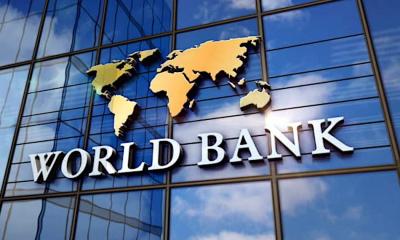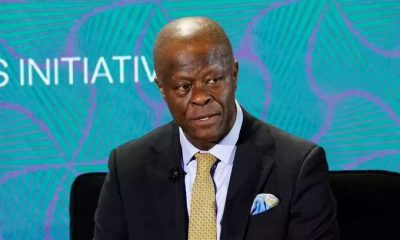Editorial
Editorial: Stimulus package and the future of the economy

The much-awaited Federal government fiscal policy instrument, or Stimulus package, which is needed to respond to the emergent situation in the economy arising from the crash in global crude oil prices – the live-wire of the nation’s revenue inflow – and the effects of the COVID-19 lockdown, was unfolded last week by the Finance, Budget and Planning Minister, Mrs Zainab Ahmed with characteristically many expectations and little hope. Like the annual appropriations or budgets of this government in the past five years a huge chunk of the revenue for the stimulus is based on borrowing.
Virtually every other country in both developed and developing economies have undertaken this process and cause of action in response to the lockdown, but what is concerning about our situation is again is the scant approach and over-dependence on borrowing. Although the minister alluded to the fact that it was part of the 2020 budget support programme, the truth is that the budget in all practical terms no longer exists, as all the indicators, assumptions and benchmarks have been irredeemably overthrown. This explains the submission of a new or amended budget last week.
Besides announcing the plan to borrow $6.9 billion from multilateral agencies such as the IMF, World Bank, and the ADBF there is nothing else to hope for in the plan. According to her, Nigeria has a contribution of $3.4bn with the IMF (called Special Drawing Right, SDR) and we are entitled to draw up to the whole, for which we have in the first instance applied. Nigeria has requested from the World Bank $2.5bn and $1bn from the ADB; the requests are for the nation, both for the federal and the states.
Unfortunately, the plan seems like another opportunity missed to reshape and reposition our economy toward real diversification and productivity from its present over-dependence on oil, which has blighted the country since 1975. Borrowing is essentially neutral; it is what we do with it that determines and defines the outcome. We have been borrowing since the coming of this regime with our debt rising from N11 trillion in 2014 to N27 trillion but the economy has continued to sink deeper into doldrums. We have more than doubled the nation’s debt stock in the past five years but the economy and poverty rate has worsened.
There is little in the package to indicate policy changes or reforms, which situations like this demand urgently. In depression economics or neo-Keynesian policy approach, as we have now, which the stimulus implies, policy objectives and economic direction both in the short and long terms are clearly defined to ensure that the stimulus is not misapplied. What we have had in the past under this government is that debts have been acquired without specific objectives and had been squandered on recurrent expenditure.
This point was made last week by PwC Nigeria’s Chief Economist, Dr Andrew S. Nevin, who believes the Nigerian Government needs to do more with the economic stimulus to manufacturers. According to him, more needs to be done by the government, even though the bailout package that has so far been provided is a step in the right direction but he stressed the severe and dire nature of the challenge, which portends serious economic implications.
So, we are here again to repeat history. What is the intended objective of the stimulus package? Getting out of recession is not an objective; what happens after that, because a recession is part of economic life? Without redefining the direction of the economy which will necessitate critical reforms or policy changes, the cycle will continue and the debt would not serve a positive purpose.
The $6.9 billion or N2.5 trillion at the current exchange rate of N360 to a dollar, is just a little more than the capital vote in the 2020 budget and barely scratches the surface of what is needed. In all practical terms, this does not qualify for a stimulus package which is supposed to inject new funds to pull the system up. It is hardly comforting if this can happen.
Hardly is a budget of N10 trillion or $33 billion intended for growth and development for a population of 200 million and an economy that is the largest in Africa with a GDP of $420 billion that is bedevilled with acute infrastructure deficit and has the highest poverty rate in the world. Experts put the requirement of infrastructure alone at about $100 billion. How do we align such a huge gap between needs and funding? That is what a stimulus is supposed to address.
For instance, the U.S. stimulus is $2 trillion which is double the previous package in 2008 and the highest in its history, because it is expected to affect the economy positively. Today the Nigerian economy is technically in recession; every reputable rating agency has said so. Fitch, S&P and Moody rating agencies have downgraded Nigeria to negative or junk, which reflects the country’s poor credit standing in the international trade and raises its trade risk profile as a result of its low foreign reserves.
McKinsey, an international consulting firm and Agusto, a Nigerian professional firm, project a recession of -3.5 per cent for the economy. EuroAsia Group, a think tank, believes the oil price slump and the COVID-19 lockdown will cost Nigeria $15 billion in revenue, half of the 2020 budget. Moreover, the promised relief package for the lockdown is hard of any essence because the people have borne the difficulty of the action so far without remedy.
Even with the package, it appears that it will be too little too late because the funding is not adequate. The cash transfer policy to the most vulnerable poor as part of its social investment programme was a subject of legislative review last week because of its poor implementation. It was thoughtless of government to have imposed a lockdown without a clear palliative measure first in place. Although the government is going to gain from the removal of subsidy, non-oil revenue will fall, which vitiates such advantage. The new policy on the refineries is an after-thought imposed by present circumstances and has little relevance.
The major challenge we, as a newspaper, see with the government is the mental policy block that forecloses certain policy options a priori without consideration of their merit. For a government to believe it would cut recurrent expenditure which is about 74 per cent of the total budget, because it may involve personnel right-sizing, privatization, devaluation, and momentary higher inflation does appear to be abreast of the economy. In five years, this government has not privatized any firms to reduce its overhead. The Orosanya Report on the MDAs is practically forgotten. Yet the system is crying for reform. Life is dynamic, so should be the policies to respond to it.
This newspaper believes that the nation may have lost another opportunity to recover and reshape its future. There is always underlying opportunity in every crisis; most nations capitalize on such opportunities, while we have always sought short term quick and “painless” fix, which only postpones the evil day, and in the end become no fix or solution at all. This stimulus package has followed the well-beaten path to nowhere.









